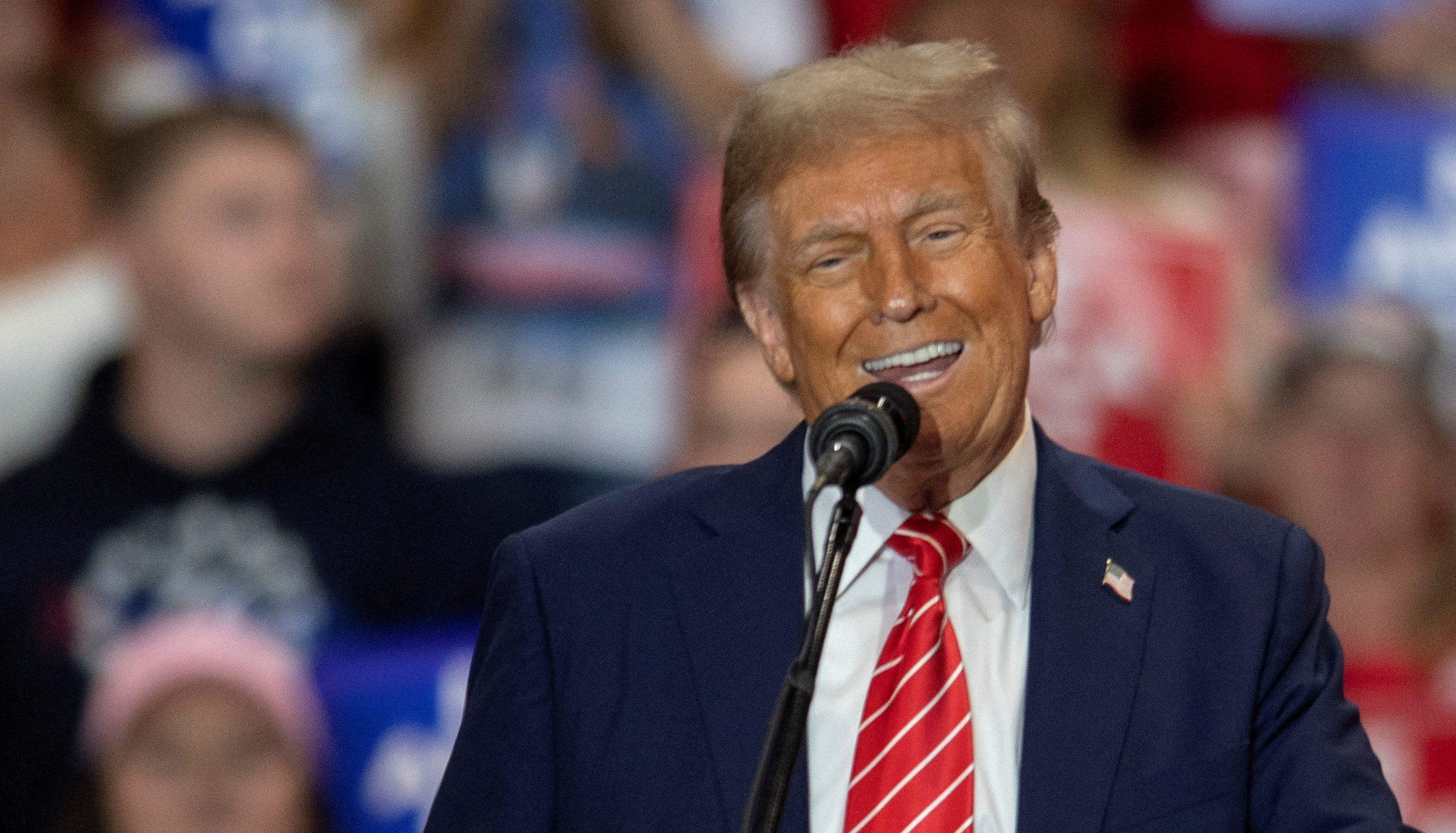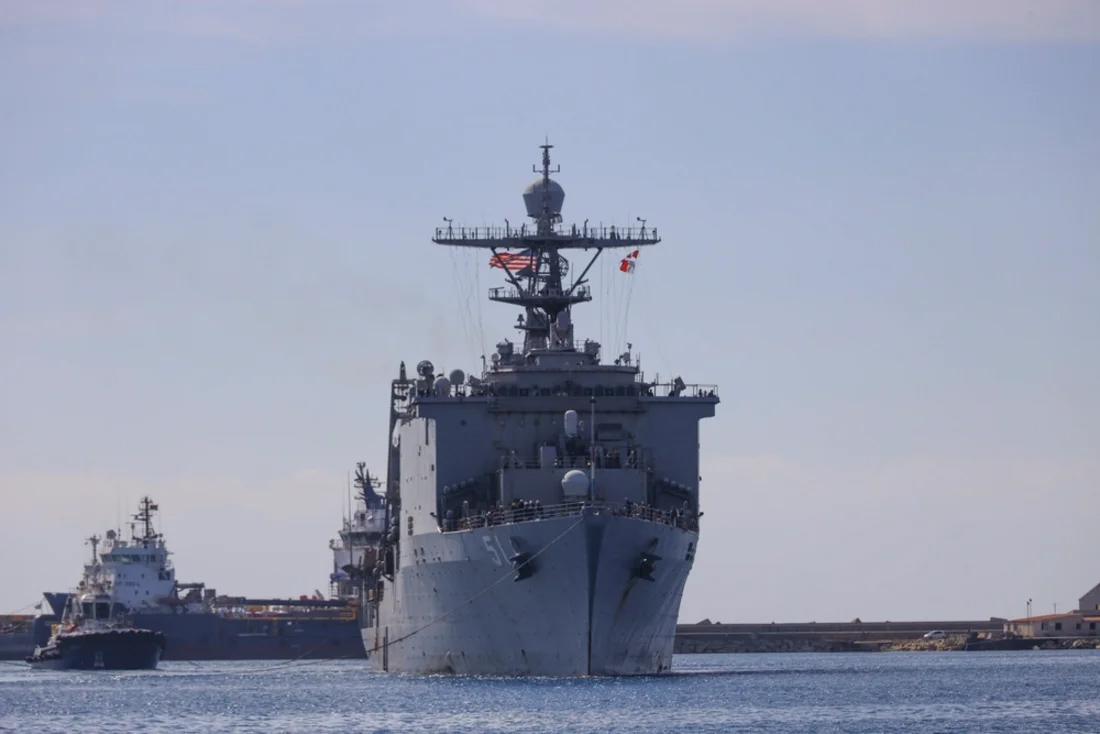And significantly for Cyprus, there is no indication of a medium-term US withdrawal from the East Med and Middle East
By Euripides Evriviades
From the moment Donald Trump triumphantly secured his election as the 47th president of the United States, much has been said and written about him, including unending speculation about his intentions. And this is perfectly understandable, given the history of his previous presidency (2016-2020), his controversial business dealings, legal battles and, furthermore, his tumultuous personal life. Understandably, people are concerned about how the US will navigate the next four years under Trump’s leadership.
Especially within the upper echelons of the North Atlantic Treaty Organisation (Νato) and the European Union there is, and may even be dominant, a political panic regarding the incestuous relationship between the two sides of the Atlantic. However, it should be noted that the political-military debate on a possible decoupling of the US from European affairs – and, by extension, developments in the Mediterranean and the Middle East, which are directly connected to Europe’s security architecture – did not start with President Trump’s blunt interventions during 2016-2020, when he directly questioned Nato’s credibility. Both the decoupling of the US from Europe and the Middle East, and by extension the questioning of Nato’s credibility, have bipartisan roots.
More specifically, this trend dates back to the second term of Republican Ronald Reagan and the first term of Democrat Bill Clinton, when post-Cold War national security doctrines of the US began identifying communist China as America’s principal adversary. Since then, Atlantic Nato has expanded and become global (Global Nato). However, the Atlantic Alliance never ceased to be primarily a tool of American preeminence. As the iconic American professor Kenneth N Waltz stated in 2000: “The explanation for Nato’s expansion does not lie in Nato as an institution but in America’s power and objectives.” The dominant post-Cold War objective of the US remains the containment of China. And American hegemony over Atlantic Europe is an essential tool for serving this purpose.
Consequently, Atlanticist Europeans who occasionally, as now, raise their voices and speak about European strategic autonomy, European defence and security and other related concepts – which, in essence, amount to nothing more than a chimera – worry wrongly, if they worry at all. With the exception of the Gaullist era, long-range strategic thinking in Europe has been virtually non-existent. The war in Ukraine is a glaring culmination of this. Instead of contemplating how Europe should think about major strategic and security issues, Europe’s so-called “war intellectuals” are more concerned with how Americans think, alongside certain well-known American think-tanks, so they can align themselves accordingly.
In contrast, American preeminence in Europe has become a way of life for them. But it also benefits Americans, and it costs Americans significantly less than what is often publicly stated by the American government. It’s a “good deal,” as businessman Trump would put it, for Atlantic Europe to be dominated so cheaply. Unlike other US presidents, however, Trump will return and coercively demand that his Atlantic allies pay their full fare on the American European security bus, which until now has been subsidised by America. Approximately 70 per cent of Nato’s fixed costs are covered by Washington.

East Med and the Middle East
By extension, these same principles apply to the American presence in the Mediterranean and the Middle East. Both during the Cold War and today, American security doctrines view the Mediterranean and the Middle East as one strategic theatre, namely as one with the European theatre. The obvious reason – the “Holy Grail” – is the region’s energy wealth, which must be controlled solely by the US. This is explicitly stated in the 1981 Carter Doctrine.
However, since the 1956 Suez War, and especially since the 1967 Arab-Israeli war, Israel has evolved into a military partner of the US, and its security – due also to the influence of the Jewish lobby in the US – has now become “integrated” into American security. American dominance in the region has, so far, produced security for most Arab regimes. The victim of this arrangement has been, and remains, the Palestinians, whose future appears bleak.
Cyprus and Greece
The American military presence in the Eastern Mediterranean and the Middle East (Southwest Asia) remains impressive in various forms but is not widely known. Strategically and militarily, responsibility for the region lies with the American Central Command (CENTCOM, https://www.centcom.mil/).
CENTCOM is one of the six global US commands and is headquartered in Florida. (See here the six commands overseeing the world, with CENTCOM as the first: https://www.centcom.mil/ABOUT-US/COMPONENT-COMMANDS/).
CENTCOM was established in 1983 as a consequence of the Carter Doctrine, with the strategic goal of rapid deployment of US forces in the region. Beyond their naval and air bases, over 40,000 marines are deployed in the area.
As with Europe, there is no indication of a medium-term US withdrawal from the region. The upcoming four years of Trump’s presidency (and his last) are too short, negligible even, for any radical changes.
More specifically, regarding Cyprus and Greece, there is no question of equality in relations between the US and its allies and partners. However, as Machiavelli wrote, a ruler needs courtiers to essentially legitimise his authority, and similarly, courtiers need the ruler for their security and prosperity.
As for Greece, American hegemony is limited by its Nato membership, which, according to its Charter (Treaty of Washington, 1949), is an international organisation of equal members and not a military alliance. In fact, the word “alliance” does not appear in the Treaty. Nato can only function as a military alliance by consensus. Here lies the misconception of the “one for all, all for one” spirit of Article 5 regarding Nato solidarity. There is no automatic response against aggression. This ambivalence is what Trump uses to impose his will on Atlantic Europe. But the Nato Treaty also offers its members options, allowing them to expand their influence under specific conditions.
Additionally, due to the current situation, especially because of the war in Ukraine but also the one in Gaza and Lebanon, the US has developed and deepened bilateral relations with traditional and new allies, while limiting them with others. The rationale here is for the US to expand its options. From this perspective, we can see an “upgrading” of relations between Athens and Washington. It is up to Athens to maximise this relationship to serve its national interest.
Regarding Cyprus, in a recent article in the Cyprus Mail (‘Cyprus, Nato and the final leap: The big challenge: making the Republic of Cyprus a ‘Major Non-Nato Ally of the US’, October 27), I penned some policy recommendations in light of recent institutional developments in the bilateral relations between Nicosia and Washington. In my article, I mentioned a possible future visit of the Cypriot president to the White House without knowing that such a development was already in the works. I consider the recent visit of Nikos Christodoulides to the White House a significant event that is unaffected by Trump’s election.
In conclusion, I would like to emphasise something that I consider of utmost importance. I have no concrete evidence, but I reckon that behind the spectacular development in relations between Nicosia and Washington, the driving force is the Pentagon and not the State Department. A thorough study of published information to date leads to this conclusion. The bilateral agreements between Cyprus and the US serve the Pentagon’s specific needs, namely those of CENTCOM. And these needs are met without the “Turkish-style” blackmail and side effects. If my working hypothesis is correct, Trump’s election – with the expectation of a transactional relationship between him and Erdogan as in the past – will not impact this negatively.
Whether these positive developments will create a critical mass that will also have favourable consequences for solution of the Cyprus Question, (I note here the change of the language by the Americans and the possible abandonment of the Anglo-Turk colonial construct of the Cyprus Problem), I do not know. What I do understand is that, for the first time, there seems to be an American position against the Turkish veto that operated within the Ankara-Washington-Nicosia triangle for decades now. This is the reason why Nato’s Turkey is protesting loudly that it is “encircled” and that its security is threatened.
Ankara is protesting because the policy options of the Cypriot state – the Republic of Cyprus – are expanding, while their own expansionist ambitions are being curtailed. If as a consequence of the improvement in US-Cyprus relations the Republic of Cyprus is invited by the president upon the recommendation of the Pentagon to become a Major Non-Nato Ally of the US (MNNA), then we will have a significant consequential development for the future and the security of the Cypriot State and its people.
Euripides L. Evriviades is a former ambassador of Cyprus to the US and the UK and has held several other top diplomatic postings







Click here to change your cookie preferences